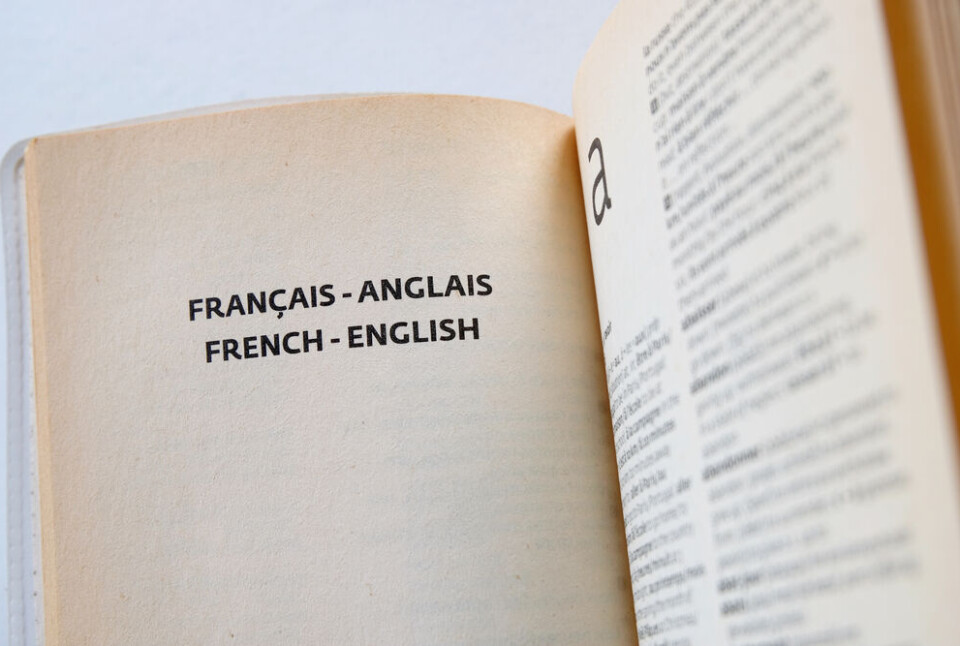-
Ryanair UK routes return to Bergerac for summer 2026
Dozens of flights to Dordogne airport offered by low-cost carrier in summer season
-
Photos: fresh snow boosts French ski resorts
More snow is expected in the Alps and Pyrénées this weekend, ahead of the popular Christmas season
-
French mayor fines engine idling motorists: What does the law say?
Is it illegal to keep your motor running when stopped in France?
French linguist Alain Rey dies aged 92
Mr Rey loved language and was best-known as one of the original creators of the Le Robert dictionary

Famous French linguist Alain Rey, one of the major original creators of the iconic dictionary Le Robert, and known for his love of the French language and the ever-evolving nature of words, has died at the age of 92.
His death in Paris on Tuesday October 27 was confirmed by his wife and publishers les éditions Le Robert.
Mr Rey was part of the 1951 team brought together by the lawyer Paul Robert to create a new “alphabetical and analogical” French language dictionary. This led to the six-volume “Grand Robert” in 1964, and the “le Petit Robert” in 1967, as well as many other later iterations.
Mr Rey was born on August 30, 1928 in Pont-du-Château, Puy-de-Dôme, and met Mr Robert during his study of medieval art and letters.
Since childhood, Mr Rey had been “fascinated with words; their music and their image; their background and their strangeness; their richness, and the light that they project onto things and to beings”, said Le Robert on its website.
It also paid tribute to Mr Rey on its official Twitter account (below).
In an interview in 2015, Mr Rey said: “I don't try to push [the French language] around, I try to deepen it, and try to see it behind the things we use every day, the little mysteries hidden by centuries and centuries of use.”
While Mr Rey was known for being in favour of the language’s evolution - such as the feminisation of words such as “acteur (actor)” to “actrice (actress)” - he was also notably against what he called the “invasion of ‘Californianism’, a modern version of ‘anglicisation’”.
With humour, he often decried the use in French of words such as “spoiler” and “hashtag”, and worked to spread the French or Latin origins of the words, and their French equivalents.
For example:
-
Hashtag: Mr Rey said: “When we started saying hashtag instead of [French word] ‘dièse’, I was rather sad because I find that there is no point going to English for no reason. But then I consoled myself a bit that the word ‘hash’ in English comes from the French verb ‘hacher’, which arrived in English through the Norman barons.
“So when we think we’re adding another English word [to French], actually, the French word is of German origin. So you see how language can take turns and detours!”
- Pare-brise (windscreen): “An invention from the time when cars started appearing. It was open, but we needed a cap over it to cover. So we gave it a name that already existed but that many people didn't know, which was a sort of fan that beautiful women put in front of their faces to protect them from the breeze.”
-
Abracadabrantesque: This word was often used by former late President Jacques Chirac. Mr Rey once explained: “What is funny is that this bizarre adjective has existed since the 16th century. It literally means, word by word, that ‘four breaks four’, which seems absurd.
“But it hides the meaning of an eternal god, who is master of the four elements, and can break the four elements, because he does what he wants. And he brought together chaos to make the world.”
- Khey: In an interview with news source 20 Minutes in 2017, Mr Rey said: “My new favourite word is ‘khey’. It is Arab Algerian and means ‘brother’. And associated with this is an expression that I find very beautiful, ‘it’s the blood’, which means ‘we have the same blood, we are in the same community, we know each other. There is nothing racist about it; it means that we are all together.”
Also in 2017, Mr Rey took part in a “rap game” with the freestyle rappers Bigflo and Oli, and the YouTuber Squeezie. He gave them a list of words from the Grand Robert of which “no-one knew the meaning”, and asked them to include them in their rap.
He even took part in a rap with the group, much to everyone's amusement.
He said: “I am happy to teach these young people these words that they didn’t know about, and once they have put them in their rap, the words come to life - because that’s the idea, it’s to stop words from dying, and for that, we have to make the words accessible, and to do that, rap is a good medium.”
Related stories
Don’t say podcast or clickbait in French say…
New French words: hipstérisation, antivax and infox
























